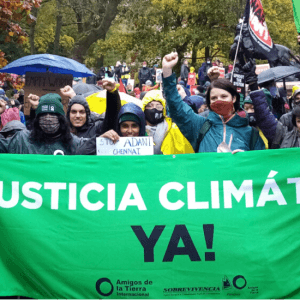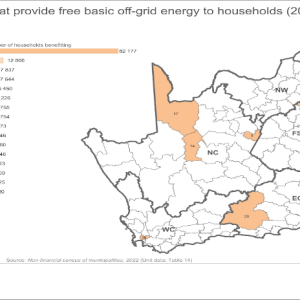It is increasingly important to involve marginalized and/or disadvantaged groups in decision-making and progressive action regarding renewable energy, waste management, and sustainable transportation, as they are often the ones most left out.Regarding renewable energy, it is essential to note that the distribution of renewable energy structures, as well as coal-powered plants, is concentrated in lower-income,...
Tag: 87
Climate justice in the UK is not just an environmental issue—it is a profound social justice challenge that highlights the intersection of inequality, poverty, and sustainability
Climate justice addresses the unequal burdens created by climate change and seeks equitable solutions for vulnerable populations. In the United Kingdom (UK), marginalized demographic groups often lack access to affordable renewable energy, transportation, and waste management services, exacerbating social inequalities. In the UK, low-income households, ethnic minority communities, and rural populations are disproportionately affected by...
About five to seven percent of Turkey’s population is thought to live in energy poverty
In Türkiye, the shift toward a greener future isn’t reaching everyone in the same way. For many low-income families, particularly in rural areas or urban neighborhoods with limited services, renewable energy remains too expensive to consider. While solar panels, better heating systems, and electric vehicles are becoming increasingly common in wealthier parts of cities, others...
The energy transition in Spain will only be fair if all citizens have access to affordable and sustainable energy sources
A just climate transition aims to advance the development of a decarbonized economy by creating the right conditions to ensure that no industry, territory, or social group is harmed in the process—including workers, vulnerable communities, suppliers of goods and services (especially small and medium-sized enterprises, or SMEs), and consumers.EU Regulation 2021/1056 establishes the Just Transition...
Approximately 60% of rural households in South Africa lack access to electricity
Approximately 60% of rural households in South Africa lack access to electricity. Most low-income urban settlements lack access to renewable energy, and over 40% of households connected to the grid are considered energy poor, spending more than 20% of their monthly income on electricity. Many households and businesses are embracing renewable energy as an alternative...
Marginalized groups in Saudi Arabia such as low-income migrant workers, rural Bedouin communities, and residents of underdeveloped urban peripheries often face climate justice issues
In Saudi Arabia, marginalized groups such as low-income migrant workers, rural Bedouin communities, and residents of underdeveloped urban peripheries often face limited access to affordable renewable energy, efficient public transportation, and formal waste management services. Migrant workers—largely from South Asia and East Africa—typically reside in labor camps or crowded housing near industrial zones, where infrastructure...
Nearly half of Nigeria’s population resides in rural areas, yet fewer than 30% have access to reliable electricity
Nigeria, Africa’s most populous nation, stands at a crossroads. While the country boasts vast oil reserves and abundant renewable energy potential, millions of its citizens remain trapped in energy poverty. This crisis goes beyond kilowatts and grid connections – it’s about restoring justice to our energy system. Climate justice demands that we dismantle the barriers...
Indigenous communities in rural areas, urban populations in informal settlements, and agricultural workers in regions like Chiapas, Oaxaca, and Guerrero are most at risk in Mexico
In the fight against climate change, climate justice stands as a beacon of hope and fairness. It reminds us that the transition to a sustainable future must include everyone, especially those who are often left behind. Mexico, with its rich cultural diversity and vast natural resources, has an incredible opportunity to lead by example, ensuring...
More robust regulatory mandates, greater decentralization, and targeted outreach to migrants and renters are necessary to prevent further marginalization of vulnerable groups in Japan
Inequality in Japan: Who Is Left Behind in the Transition to Renewables? Japan, a nation celebrated for its technological expertise and environmental stewardship, grapples with a paradox. While its urban centers rapidly embrace renewable energy and eco-friendly transportation, significant demographic groups face substantial obstacles in accessing affordable and sustainable services. From the aging populations in...
Indonesia faces significant challenges in ensuring equal access to essential services like affordable renewable energy, transportation, and waste management
Indonesia, comprising more than 17,000 islands and over 270 million people, faces significant challenges in ensuring equal access to essential services, including affordable renewable energy, transportation, and waste management. Marginalized groups, such as primarily rural and remote island communities and urban slum populations, experience chronic barriers to accessing these services, with deep effects on their...











